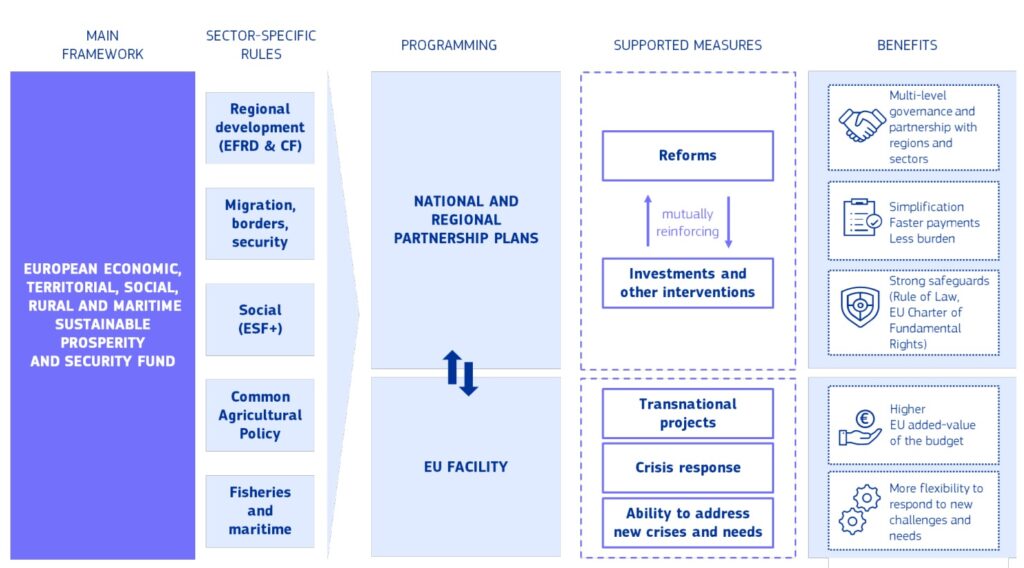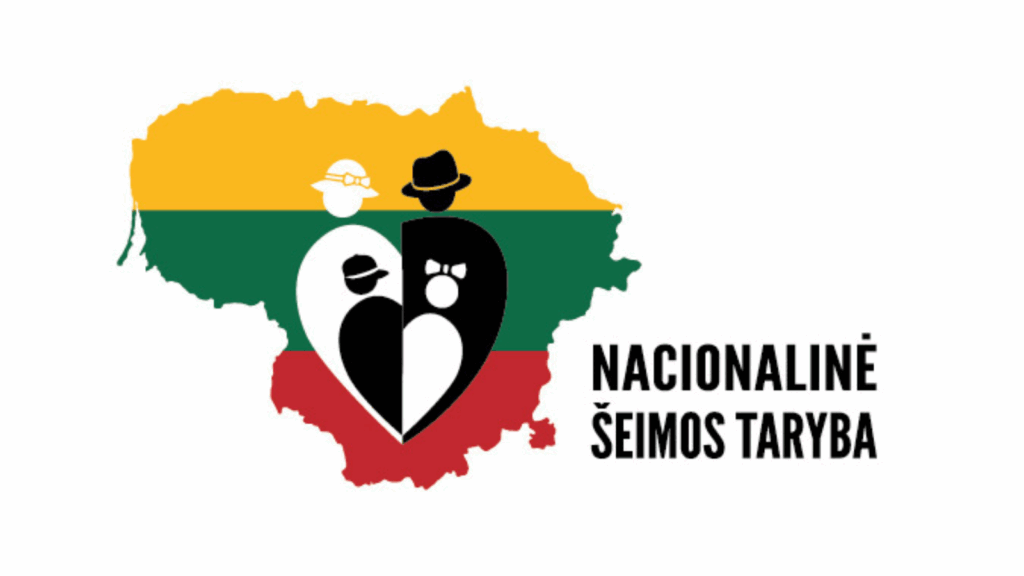2020 is off to a crazy start. After the Australian bushfires, followed by Australian floods, the Coronavirus pandemic started spreading across the world, shutting down a large part of China, followed by Europe, and most other continents as well. While humanity has kept its sense of humor (my favorite meme below) and creative edge for coping with the pandemic, it is clear that these events, and especially the coronavirus pandemic, will leave a lasting scar on the entire world.
As many have pointed out, the actual death toll of the coronavirus thus far is smaller than many other causes of death. However, the speed of propagation and contamination runs the risk of saturating the capacity of our healthcare facilities to cope with the sudden surge in the sick and dying, as seen from the terrible reports out of Italy. Thus, without any containment measures, the number of deaths could skyrocket. Thanks to confinement measures, it is highly unlikely that the death toll of the coronavirus will surpasses the number of yearly deaths from starvation, which stand at around 9 million each year. But what has changed is that this time, no one on the entire planet can turn a blind eye to what is happening. Every country is affected. Not equally, but affected nonetheless. And that changes everything. As unfortunate and cynical as it may sound, for many people, when it’s their mother or their best friend who is in the hospital, between life and death, it triggers other form of compassion and grief than watching reports from starving children (when they are reported at all) from the other side of the world. Perhaps the very first lesson of this virus is a shift towards universal compassion and solidarity for our entire kin. We are in this together, now more than ever.
With confinement being a shared strategy across most countries, people have taken to social media to start debating about:
- their governments’ response : whether or not confinement is the best strategy, or whether a strategy of mass testing and mask wearing like South Korea wouldn’t have been wiser (which would force governments to admit their lack of preparation to face this crisis);
- the potential treatment : everyone sharing their « expert » opinion on the use or not of chloroquine;
- how this pandemic brings out the best and worst in humanity : countries hogging masks, the end result of neoliberal policies starving public health services from the resources necessary to handle the pandemic, encouraging signs of solidarity with countries cooperating and sharing resources, countries taking in patients from other countries…;
- the origins of the pandemic : from an accidental mutation of the virus, to a contamination from wild animals, all the way to a worldwide conspiracy of the illuminati trying to get rid of half the world population;
- nd many more serious issues like whether or not to hog toilet paper and if toilet paper rolls might become an official form of currency once the entire financial system collapses, whether it is legal to tie up and gag your children in a rolled up blanket and hang them from your balcony.
Whatever the answer to that last point may be (it’s a no, I know you wish it weren’t, but it’s illegal for sure), what is clear is that the world will not be the same after this pandemic finally blows over.
From the micro perspective, the coronavirus will have affected people not only directly and physically (those who fell sick, those who lost loved ones and friends to the disease), but also psychologically due to the lockdown and confinement measures. In our “modern” western societies, this typically meant a brutal halt to the daily rat race of our lives: wake up early, take care of the kids, drop them off at school, go to work, frantically chase after productivity, go home, pick up the kids, prepare dinner, put them to bed, and watch a series on TV while ordering a few gadgets on the Internet to feel better for living such a crazy life.
Being stuck at home, everyone has now time to ponder and reflect whether this rat race even makes sense in the first place, whether they were living a happy life, whether they made the right career choices, whether live to work and work to live is a world worth living (or rather, surviving) in. It also exposes everyone to their hidden demons and fears, which could be buried under frantic activity while the rat race was going on. Now, as you’re stuck at home, whether alone or with others, all the unresolved relational, interpersonal or psychological problems come bubbling to the surface. We will most likely all need the help of a psychologist or couple therapist when this blows over. It is likely that many will reshuffle their priorities in life, who they spend time with, and what they devote their time to. As the fear of death mounts, be it via contracting the virus, via starvation due to lack of financial resources (yes, many millions of families were already living pay check to pay check) or via an imagined (real or fictitious) collapse of our civilisation where we all start fighting for food and other resources, the questions which have been set aside in the minds of most of us will come back to the surface. Why are we here? What is the meaning of all of this? More and more people will likely start feeling existential, and try to find a deeper meaning to life than just: work (a lot), sleep (sometimes), consume (a lot, use credit if you can’t afford it), reproduce (but not too much).
Regardless of what everyone’s personal “realization” will be, what is clear is that people will never be the same.
From the macro perspective, the headlines are unanimous: this pandemic will set off the worst recession/depression since the 1930s. Even if some economists are trying to downplay the fallout by trumpeting the success of various institutional responses, they will soon snap out of it. The current strategy to mitigate the economic and financial consequences of the coronavirus lockdowns is to avoid payment stoppages, especially from borrowers to lenders (from businesses/individuals to banks, or any other recurring payments like rent or utilities), which would transform this economic crisis into a financial meltdown of cascading defaults and bankruptcies. If loan payments stop, we could face a major banking crisis, where many banks could go into forced bankruptcy. In order to avoid that, institutions from all over the world, be it governments or central banks, have promised, among other measures to:
- put money directly in the pockets of vulnerable businesses (by paying part of the salary of their employees, or giving them tax breaks) :
- put money into the pockets of citizens (talks of a form of helicopter money, either as a “one off” check or a universal basic income are being discussed in many countries, or as extra social protection measures for the most vulnerable) ;
- shower banks with liquidity so they can lend more easily into the economy (to allow businesses, especially, to roll over their debt), and backing parts of those loans by the state (in case of default, the state would step in and foot the bill) ;
- going on a debt frenzy by increasing public spending in general by 15-20 % of GDP or more.
While this may prevent the economy and the financial system from collapsing now, it’s just buying up time and postponing the inevitable for later. What optimistic economists and analysts hope, is a V shaped recovery, where things return to “normal” after the confinement period is over. A much more realistic scenario is an L shaped recovery: consumption and economic activity in general will flat line at a much lower level once confinement stops. As nice and well intentioned as all of these measures and predictions are, the major problem that is insurmountable, is linked to the inherent logic behind the current debt based monetary system which cannot be so easily changed. In order to pay for debt, you need to have growth, or some form of “surplus” in the future, to be able to afford the interest on the debt. And the likelihood that any country in the world will experience double digit growth in the near term or even in the long term, given the challenges ahead (natural disasters as the result of climate change) is close to zero.
At this point, many economists will object that theoretically, a country can indebt itself into infinity, so long as it has a stable number of productive citizens (or rather, debt slaves in this case) to pay for that debt via taxes, then the debt can grow to very high levels without any major problem (see Japan) other than an increased pressure on the population (which, fortunately, is very dedicated to working hard in the case of Japan). But that’s precisely the point: people often don’t realize that a growing public debt is equivalent to forcing each citizen to borrow an equal share of the debt that the state has borrowed, and pay it back via taxes. But where will citizens find the money to pay those higher taxes in a zero or close to zero growth environment? That is the situation that Japan is in: a secular stagnation for the last 30 years. When one country becomes a stagnating debt zombie, it may have mild effects on the world economy. But what happens when most countries become stagnating debt zombies? Besides, who is going to buy government debt once it becomes clear that it will likely never be reimbursed?
Another grim scenario is to apply the “Greece” treatment to the entire world: once it becomes clear that government debts are unsustainable, whoever owns the debt (private banks, large private or institutional investors, the IMF) place pressure on the countries to sell every single public asset to the highest bidder in a vain attempt at lowering the debt burden. The end result would be a modern version of medieval age serfdom, where each and every “worker” in the world would be a mere serf at the service of private “lords” which would extract rent thanks to the help of the state, which would itself become a slave to their bidding via debt (something we have been experimenting with on third world countries by the way, under the term “structural adjustment reforms” with disastrous economic and social consequences).
Alternatively, the state may end up overtaking the entire economy, nationalising the banks and companies, in which case, we should pray that our democratic rights will be maintained. We have already witnessed the erosion of democracy in many European countries, notably in Poland and Hungary. A form of totalitarian surveillance state capitalism is what might emerge out of this whole mess, along the lines of the countries leading in this regard: China and Russia.
Finally, some would point to the “wild card” that central banks could whisk out, at the last minute: swallow up debt via “magic money” and creative accounting tricks. In essence, printing money to artificially lower the debt to a sustainable level. The exact effect of such a move is very hard to predict. How will people react when they find out that this has always been a possibility, and was never used, even as millions of households struggled daily in poverty, and that there never was a penny available to finance social policies or counter the effects of climate change? How will markets react to such “magic money” solutions? We can only speculate, at this point, as there is no precedence to the current situation ever in the last few centuries.
Again, regardless of what economic ideology one adheres to, what is clear is that the economy will never be the same.
All of this may look like wild over-exaggerations from a paranoid leftist, but don’t worry, I know it will never actually come to that. The economic and financial system will collapse long before then.
The reason is simple: people won’t go on a shopping spree once this is over. Before this pandemic even started, consumption patterns were flat, inflation was nearly flat, growth was flat, we were already in a form of “plateau” where millions of families were living pay check to pay check and millions others were dependent on social benefits to make ends meet. Purchasing power has also stagnated, and has not even kept up with the meager inflation levels. The gap between the ultra-rich and the rest has widened everywhere, and mass protests have broken out all around the world, with the “yellow vest” movement being the most significant in Europe, demanding deep reforms to allow people to simply live in decent conditions. What will be the effects of this pandemic on families which were already nearly broke ? Certainly not to make them frantically running around buying “stuff” once confinement is over.
On top of that, businesses and consumers alike won’t take on new loans. This will set off what is called a “credit crunch”, even if the term is typically reserved to a situation where banks are unwilling to lend, it has the same effect as a situation where no one is willing to borrow. Even if the central banks, through states, offer very cheap refinancing options, as the saying goes, “you can lead a horse to water, but you cannot force it to drink”. Given the high risk environment, only businesses which somehow have trust in the future will leverage very low or zero interest loans to roll over their existing debt, and those will be a precious few, probably mostly multinationals. Many small and medium sized businesses will inevitably go bankrupt and unemployment will rise (which is already the case, in many countries), creating a self-reinforcing depressive spiral on the economy. The amount of money necessary to keep all current businesses from going under is much higher than any of the current measures proposed or considered.
Finally, while many may be complaining that confinement forces people into frugality and ascetism, many will realise that actually, they don’t really need all that much to be happy, and especially, that what they need the most is not gadgets, but human contact and camaraderie, which cost nothing, only time, which by then, people will have found out, is much more precious than money.
Capitalism, the entire economic and financial system, relies on the fact that people continuously buy crap, whether they really need it or not. That is the first thing that will change after this crisis, bringing this entire game of monopoly to a brutal end.
The silver lining is that the shutdown of nearly half the world is already showing positive effects in terms of pollution and other climate related indicators. A debt based monetary system cannot handle “degrowth”, it can only handle a very gradual “transition” where growth is (hopefully) transferred from highly polluting production to a sustainable one. Perhaps this is nature telling us: “you’ll never make the transition at this pace, here, let me give you a hand…”
Now, as you may be reading this, your anger and anxiety levels may be rising. “Thanks for raising my spirits doctor Doom!” You’re welcome.
Fortunately, since I work for a social NGO, which has a mandate to work for the public interest, and especially, that of families, I am being paid specifically to spew out solutions to problems, and so this crisis is far from catching organisations like mine off guard. In fact, most NGOs and civil society organisations were expecting another crisis regardless of what would be the actual trigger: trade wars, the collapse of Deutsche Bank or the current coronavirus. The economic and financial system was on life support since 2008 anyways, so we had plenty of time to reflect.
While my fellow colleagues from various civil society organisations will advocate for measures which would equate to a form of “reset”, partly or fully, of the current capitalist monopoly rat race we are all playing, and allowing the players to play another few rounds (via a modern “debt jubilee” for instance, or helicopter money), I would advocate ditching the monopoly altogether and start a new game, with entirely new rules. In our 2018 seminar entitled “Economics at the service of society”, I presented this alternative monetary model. The summary of the seminar can be downloaded here.
This opinion piece has been long enough, so I will simply mention the name and reference of this new monetary theory, and let you discover it at your leisure, taking advantage of the confinement to reflect on a real alternative which can fully address all of the shortcomings of a debt based monetary system and is fit for facing the challenges we will be facing in the future (climate change) by putting people at the center, making the transition to a more sustainable future possible.
The Relative Theory of Money: https://en.trm.creationmonetaire.info/
______________________________________________________________________________________
**DISCLAIMER: All opinions in this article reflect the views of the author, not of COFACE Families Europe**
About the author:
Martin Schmalzried holds a Master’s Degree from the ULB (Brussels) in Political Science. He has been working at COFACE-Families Europe as a Policy and Advocacy Manager for 9 years. He has been responsible for the portfolio of financial services since January 2009. He is a Member of the Financial Services Users Group (FSUG) since 2013 and a Member of the EBA Banking Stakeholder Group since 2016. His areas of expertise are financial inclusion, creditworthiness, big data in financial services, fintechs, blockchain and virtual currencies.





